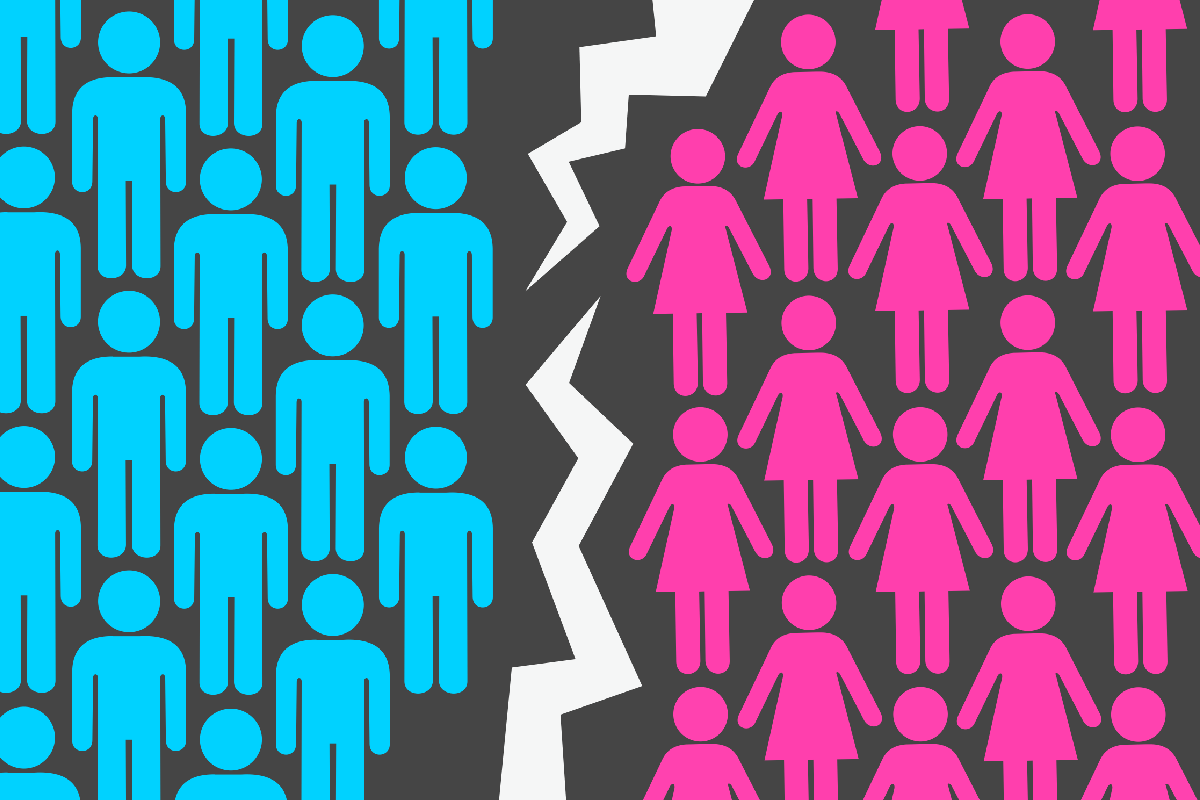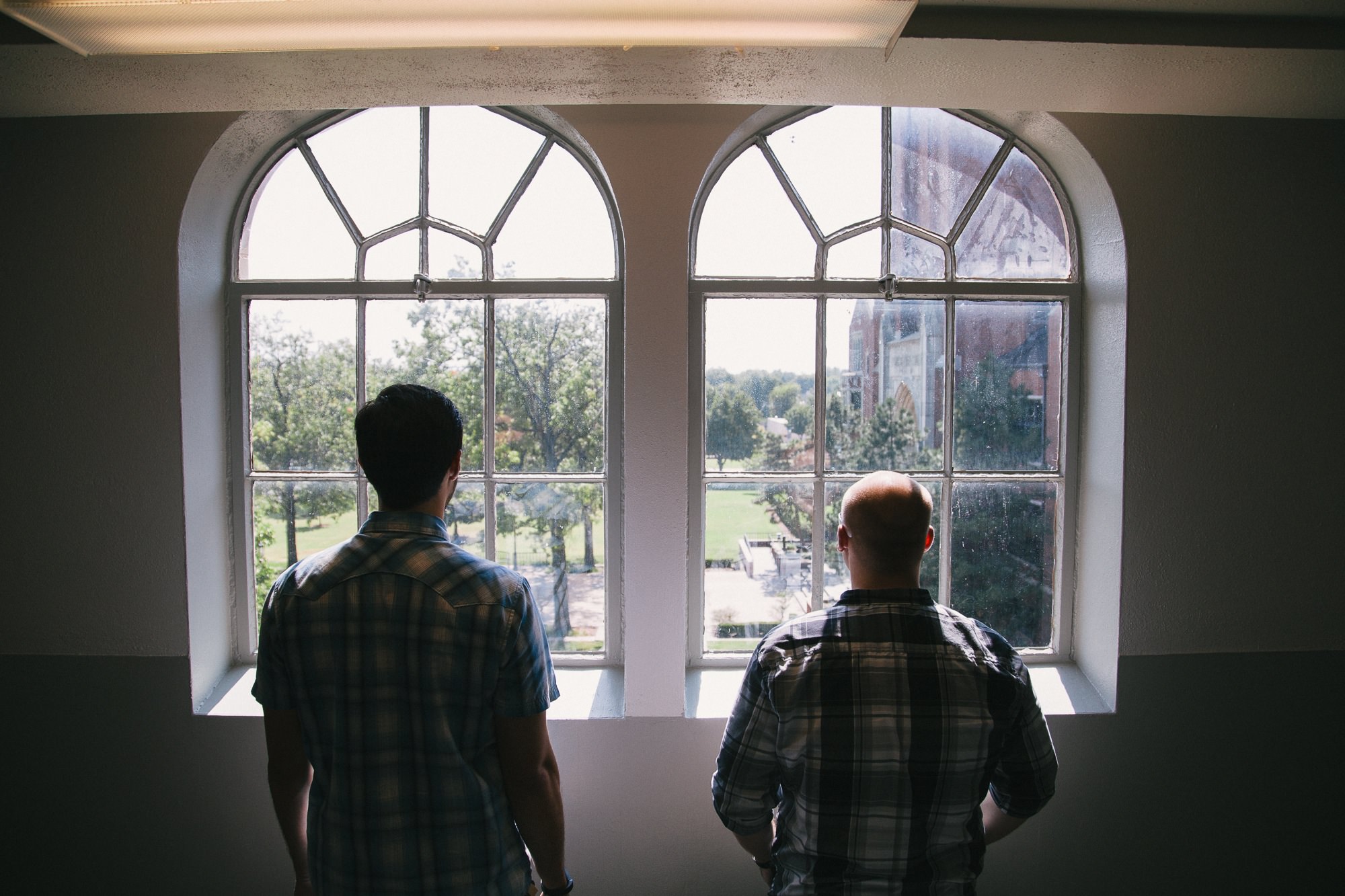Feminism
Feminism's Dependency Trap
Unintended and painful irony of recent feminism’s preoccupation with overcoming male oppression has been to place men at the centre of female identity.

Reading the news stories about #MeToo and sexual harassment, and the barrage of social media posts that accompanied these headlines, I became saddened but also increasingly frustrated. It wasn’t the reports of men behaving badly that angered me, but the despair that seemed to be the expected response to these stories, and the helplessness that my female friends appeared to attach to femininity itself that I found troubling.
The unintended and painful irony of recent feminism’s preoccupation with overcoming male oppression has been to place men at the centre of female identity. This makes the feminine experience something like an echo; women’s voices seem to be little more than a response, or a rebuttal, to men’s voices, which are taken to be primarily an instrument of patriarchal oppression. But, in my own experience, men aren’t interested in maintaining power and control over women—they simply don’t see women as a group that they are oppressing, or that they would like to oppress.
We hear a lot about “male privilege” but historically it has been the “privilege” of men to make their way in the hard world in order to first win a woman’s affections, and then support the family structure financially. We might call this “patriarchy,” but this term isn’t the synonym for misogyny that contemporary progressive political culture seems to think it is. (One has to appreciate the misplaced sincerity of many of my university students who roundly condemn The Patriarchy, while driving their father’s Toyota to campus every day, and using his savings to pay for their tuition. Not infrequently it occurs to me that the people who are most vocal against The Patriarchy are those who have benefited from it the most.)
A further concern I have with the message and tone of contemporary feminism is that women have evidently forgotten that we have power over men as a result of the fact that we’re women—men adore us, and almost all their efforts at work or at home or in social settings, are made to win our approval, if not our admiration. In short, I am bewildered by the fact that in a culture in which The Patriarchy has never had less power over women, women seem to want to attribute to it a greater power than men in fact have, thereby confining women to a position of victimhood and powerlessness.

Victim status holds its own form of power, of course, but this nurtures resentment which is always utterly joyless. Curiously, mainstream feminism seems designed to perpetuate the story of male power and oppression: feminists seem to need it as an antagonist against which to define themselves. What follows is a critique of current feminism, undertaken in the service of what I believe is a better and more healthy feminism: a celebration of the feminine and of women’s innate power. Consider this, then, another way of looking at women’s relationship with men that does not see them as either victims of or insurgents against male oppression, but rather as free, self-confident, and joyful individuals.
I take a particularly keen interest in telling an alternative story of women because I see my university students anxious and angry about female identity generally. And, as a single mother to two young daughters, I have my own personal stake in the game. Questioning a culture that seems to tacitly naturalize female weakness is more than an academic concern for me. I’m unable to see the benefit of raising young girls to have a martyrdom complex as a defining feature of their identities, especially when it is arguably the case that men don’t see us as powerless in the first place. If we continue to insist that misogyny is ubiquitous, an inextinguishable and existential fact that orders relations between men and women at a fundamental level, what follows? We’re teaching young women to embrace resentment dressed up as liberation and agency. This is a counsel of despair.
The orthodox line of feminism is that women don’t need men, and that it is men who keep women in a state of dependence. This is the doctrine of women’s liberation: we are trying to liberate ourselves from our dependency on men. Pragmatically speaking, the notion that we don’t need men is largely true. (As a single mother and single woman, I’m certainly poorer than my married counterparts, but I am running a family household successfully, if chaotically.) Paradoxically, however, the rhetoric of orthodox feminism implies the reverse: we need men in order to prove to ourselves that we don’t. I don’t need to sleep with a stuffed animal at night, but were I to insist on mentioning this at every opportunity, it would become abundantly clear that the idea dominated me. At a time when Western women have achieved economic independence, control over their reproductive rights, legal equality, and equal professional opportunities, the continued obsession with the need to win independence from the thing that we are, in every measurable way, already independent from, reveals just how subservient we are to the idea of powerful men. After all, only a child still dependent on the comfort of a stuffed toy needs to insist to herself that she isn’t.
Yes, but—my detractors might say—women only insist that they don’t need men, because men assume that we do need them. We are fighting the tacit understanding of male privilege and power, and we need to prove to them that their archaic assumptions are not only incorrect, but unethical. Or, they might object that women need to assert that they don’t need men so loudly and consistently because, historically, we’ve been raised to believe we do need them under the rule of the patriarchy and its constructed gender roles, so we must now de-program our sisters and daughters. These objections, however, fall back into the familiar pattern of making The Patriarchy the centre of female identity and ignore what is perhaps the most important fact of the relationship between men and women: although women may not need men, men still need women.

Let me say that again: men need us. It’s silly to enter into a conversation about women and men without acknowledging the basic biological drives of our species. I’ve never known a heterosexual man who isn’t constantly preoccupied with thoughts of women. Their own nature is at work against self-possession: the sight or the thought of a woman can overturn a man’s thoughts, his will, and seriously compromise his reason and unbalance his ability to make decisions. At times, this preoccupation can manifest as anger and even hatred. Nobody is suggesting that misogyny isn’t real. Most of the time, however, men’s need of women results in clumsy attempts at flirtation or awkward and unwanted advances. From what I can tell, a large proportion of the #Metoo complaints are of this nature.
If feminism is, in part, about women being seen as independent and free sexual agents—adults, in other words—then why is it so frightening to them when a man treats them as just that? If women want to be seen as sexual free agents then we should stop acting like scared and helpless children when men treat us as such. Those who respond by appealing to the bureaucratic systems of corporate structures (broadly known as the patriarchal system), or to the warm and nurturing responses of “friends” on social media, are hardly demonstrating that women are strong enough to handle sexual situations on their own.
This is not to deny that there is real and brutal violence against women, best handled by the police and the criminal justice system. But if a co-worker lets a woman know she looks hot in her skirt this can reasonably be dealt with by a woman on her own, rather than by corporate structures of authority. If we would prefer not to deal with these things on our own, fair enough, but let us not re-describe this reliance on authority as a victory for feminism, or for women’s empowerment, and instead call it what it is: an instance of women’s dependence on structural power; a paternal bureaucracy that has arrogated ever more coercive power under the banner of gender equity.
Feminism is suffering from a lack of respect for women themselves. This is part of the lack of respect for other individuals as individuals that characterizes modern culture. We have exchanged personal agency for the depersonalization of human life and individual accountability for a bureaucratic structure that is ultimately responsible to no one, because no one takes personal responsibility for it. If we want to retreat from encountering others in their particular individuality, however distasteful, we should not do violence to logic by calling it a triumph of personal agency. A complaint to human resources may make us feel safe and avoid a potentially uncomfortable confrontation, but at the expense of personal courage.
Let’s say men heed the cry of feminism and stop behaving like men treating us as women. How does this enrich our experience and identities as women? Why is the goal of feminism to be treated instead as an androgyn? How is this anything other than a repudiation of femininity itself? Occasionally women might find an unsolicited pass flattering rather than threatening. We might want to rediscover the inherent power that comes from being desired. We might not see these moments as demeaning, but rather as an opportunity to encounter another on a more human level than our bureaucratic state often allows—even if we’re going to reject the encounter. As women, we might realize that these moments can be empowering rather than demeaning. After all, it takes courage for a man to approach a woman, as it exposes him to vulnerability and to the risk of rejection. We might even consider these advances as something exciting, spicy, fun! Or we might return them with a slap. Either way, it’s time for us to start doing this.







